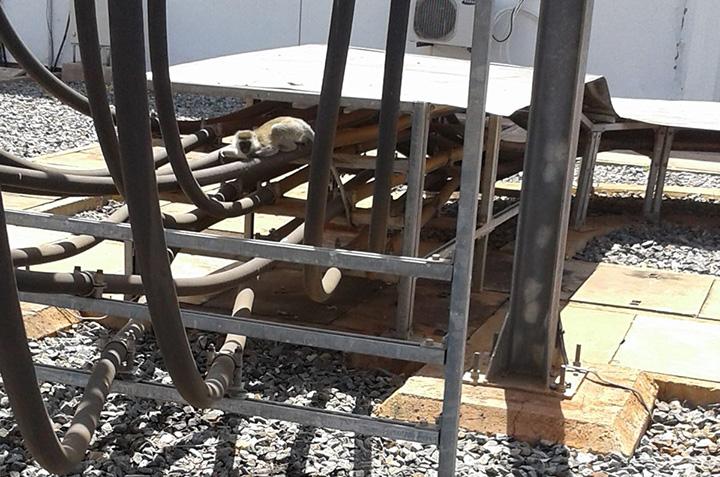 A monkey prancing on an electricity transformer caused a nationwide power outage in Kenya on June 7. The incident is a reminder of the vulnerability of our energy infrastructure. Policies to protect such infrastructure tend to focus on preventing terrorist attacks on pipelines and power stations. But, as the incident in Kenya has shown, even if all terrorist threats are foiled, energy infrastructure remains vulnerable to disruptions, whether from technical glitches, extreme weather, cyber attacks or something as innocent as a monkey.
A monkey prancing on an electricity transformer caused a nationwide power outage in Kenya on June 7. The incident is a reminder of the vulnerability of our energy infrastructure. Policies to protect such infrastructure tend to focus on preventing terrorist attacks on pipelines and power stations. But, as the incident in Kenya has shown, even if all terrorist threats are foiled, energy infrastructure remains vulnerable to disruptions, whether from technical glitches, extreme weather, cyber attacks or something as innocent as a monkey.
Energy supply systems must be designed in a robust manner that allows continuity of supply. The following steps should be taken to improve the resilience of our energy supply systems.
First, our approach to energy security policy needs to change. The United States, Europe, and many other countries have liberalized their energy trade. This process, which includes privatization of utilities and separation of companies along the energy supply chain, has created many advantages and improved efficiency. However, most states have, by and large, retreated from direct involvement in energy security and have left security of supply to market forces. Europe, in fact, has turned this into a doctrine and promotes further liberalization as the main tool to address security of supply concerns. This approach is unproven and it is unreasonable to expect that market forces alone will build the backup infrastructure, storage, etc. that provide resilience to energy supply systems.
Second, adoption of thorough emergency energy supply guidelines minimizes the impact of infrastructure disruptions. Such guidelines prioritize supply to critical sectors and curtail supply to non-critical sectors like certain industries that might be large consumers of energy, for example, steel and cement factories. Thus, glitches in energy infrastructure do not have to cause a public or other security danger. During emergency periods, proactively lowering the overall demand for energy can prevent all-out power outages and stabilize supply to critical sectors like police and hospitals. Despite the relative ease of drafting policy of this kind many countries have not enacted emergency energy supply guidelines.
In places where energy supplies are not well diversified, establishment of dual fuel power plants can increase security of supply. Thus, if the supply of fuel to power plants is disrupted a certain amount of power generation can continue.
Third, mandatory storage of energy supplies enhances security of supply. The United States, most European states, and China are among nations that stockpile oil supplies. However, very few countries have enacted legislation or fulfill regulations that mandate natural gas to be stored. This is despite the fact that natural gas supplies are much more vulnerable to disruptions than oil supplies. Some countries that have dual fuel power plants do not stockpile alternative fuels and thus when fuel disruptions occur they have to scramble to find substitute sources. This was evident during the natural gas crises in Bulgaria in recent years.
In order to ensure major energy infrastructure promotes the public interest, some countries have enacted laws that prevent foreign entities—which may pose a national security risk—from owning major energy and other infrastructure. A 2012 Lithuanian law on enterprises and facilities of strategic importance to national security is an important example. This law allows Lithuania to bar investors from its energy and other strategic infrastructure sectors that do not support Vilnius’ trans-Atlantic alliance. This law can, for example, be used to bar Russian ownership of and investment in Lithuanian infrastructure.
No energy infrastructure will ever be completely immune to threats and disruptions, whether from terrorists, technical, or even from a small mammal. But countries can be proactive and minimize the impact of such disruptions. Governments need to treat energy security on par with national security. Energy security is, after all, no monkey business.
Brenda Shaffer is a Nonresident Senior Fellow in the Atlantic Council’s Global Energy Center. You can follow her on Twitter @ProfBShaffer.
Image: This monkey caused a nationwide power outage in Kenya on June 7. (Kenya Electricity Generating Co.)

